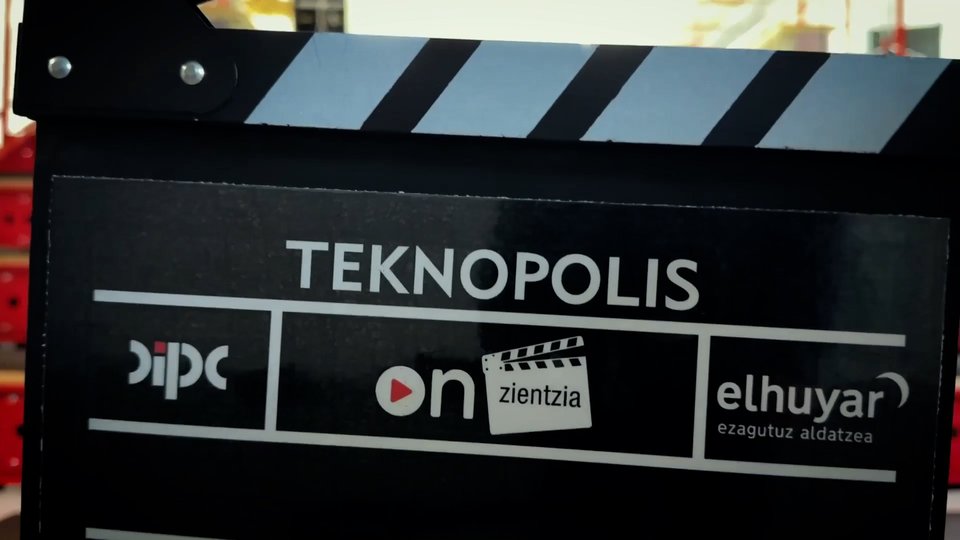By Mari Cruz Rodríguez Oroz
been working for years at the CIMA research centre in Navarra and has worked as a researcher at Ikerbasque in Biodonostia last year.
"Hi, I'm Mari Cruz Rodriguez Oroz. I am a neurologist, Ikerbasque researcher, and I work at the Donostia Hospital and the Biodonostia Institute.
I studied medicine because as a child I was impressed by the pediatrician. This man had the ability to auscultate, look at my throat, and take an x-ray with the x-ray machine and see my inside. The whole world seemed wonderful to me.
I did my specialty in neurology at the University Clinic of Navarra. My first contact with Parkinson's was there. There was a great expert, Dr. Obeso, with whom I have spent my entire professional career working on Parkinson's disease. We were pioneers in the field of Parkinson's disease, surgery, in Spain. Then I worked in different places and in 2000 I returned to Pamplona to implement the surgical treatment of Parkinson's disease. Since then I have worked at the CIMA Center for Applied Medical Research. I did the research there and the clinical part at the University Clinic of Navarra, as I do here in Biodonostia and San Sebastián Hospital. I came here in May last year. Dr. Adolfo López de Munain gave me the opportunity to create a new team and continue the work I was doing; I got the Ikerbasque place and here I am.
Parkinson's disease has many aspects. Taking care of patients is one of them, that's obvious. But there are several things that concern me as a researcher, which is to know more about the disease. Why do certain neurons die? Why do some patients have some indicators and not others? Why do some people have some problems and not others when they start treatment? Why does the development depend on the patients? If we know the answer to the causes, we will have the opportunity to treat the disease and improve its development. We will have the opportunity to lead to benign variants, we will have the opportunity to lead to situations where drugs will cause fewer problems. And perhaps in the future we will come to know so much about the causes, that we might be able to perceive the death of neurons and, if necessary, cure them. However, this is an ambition that I will not recognize.
This requires a lot of research. In clinical studies, patients are examined by a variety of techniques. And it is also essential to investigate the disease in animals. Some things can't be done with sick people. But we can cause brain injuries to animals, injuries similar to those experienced by patients. This will cause the animals to develop certain problems. Of course, they cannot be the same as human problems because a rat or a monkey is not a human being. But in some ways they can be similar, which allows us to bring research and findings to humans.
Studies could make the disease more bearable in the medium term. By the time Parkinson's disease is diagnosed, 60% of neurons in the brain's dopaminergic system are dead. In order to cure patients, it would be necessary not only to stop the death of neurons, but also to replace all the dead.
I believe that Parkinson’s and Alzheimer’s are two plagiarisms that will increase in the coming decades because they are related to old age. In addition, they are diseases that progress and currently have no cure. So we can't stop them, and after the disease appears, we can't improve the brain. Consequently, it is normal that society wants to know more, so that patients can live better or find any therapy that can slow the development of the disease or delay its onset. Any element would be very good, not only for the sick, but also for society.
The opposite of the best is the worst. When there is nothing that can be done to the sick, neither can their condition be improved. When you have put in all the treatments that are available and the only thing you can do is help, talk, listen, but medically you can't cope with the disease. That's very hard. And, on the research side, all the work behind the research projects. The work that needs to be done to request research projects, the discontent that occurs when the refusal is received, the difficulties that exist to keep people working...
Getting a patient to improve, especially when it is difficult, is what I like the most. The harder it is, and the better it gets, the more satisfaction. When you are able to help someone, the gratitude of the sick is received back. This fills me up a lot and the fact that nothing can be done already compensates all the situations, because in neurodegenerative diseases there is often nothing that can be done.
In my research, I am most satisfied with a job well done. Publish in a good magazine and get a role that everyone takes into account, this is one of the things that fills me the most."
Buletina
Bidali zure helbide elektronikoa eta jaso asteroko buletina zure sarrera-ontzian








